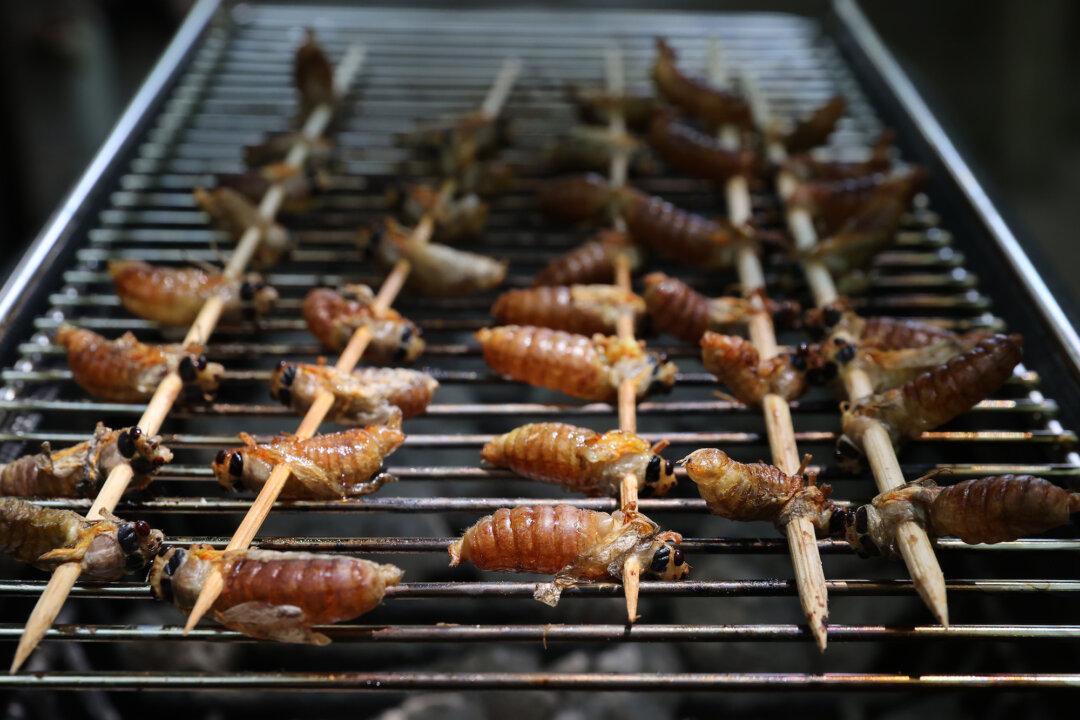Eating cicadas—fleshy insects that some people see as a tasty delicacy—is ill-advised for people allergic to seafood, the Food and Drug Administration (FDA) has warned.
“Yep! We have to say it! Don’t eat #cicadas if you’re allergic to seafood as these insects share a family relation to shrimp and lobsters,” the agency said in a Wednesday tweet.





